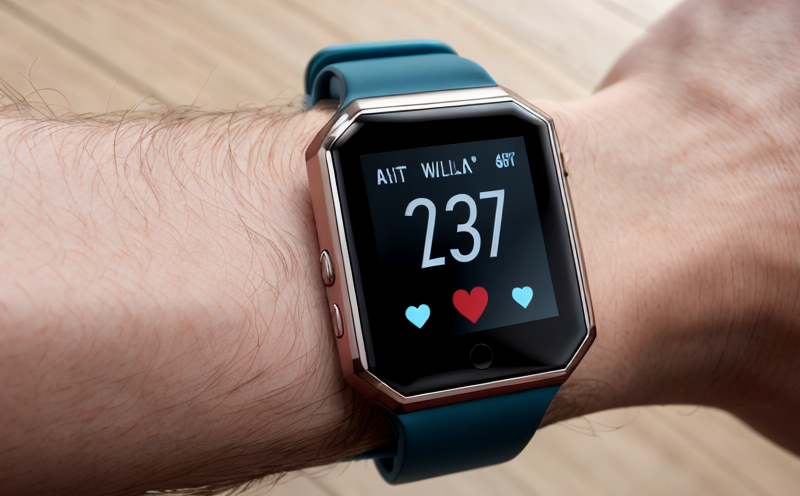IEC 81001-5-1 Cybersecurity Testing for Health Software
The IEC 81001 series of standards is designed to provide a comprehensive framework for the cybersecurity of medical devices. Specifically, IEC 81001-5-1 focuses on the security aspects of software intended for use in healthcare settings. This standard ensures that digital health solutions are safeguarded against unauthorized access, data breaches, and other cybersecurity threats.
The importance of cybersecurity cannot be overstated in today's interconnected world. As more medical devices incorporate wireless connectivity, remote monitoring capabilities, and cloud-based services, the risk of cyberattacks increases exponentially. IEC 81001-5-1 helps manufacturers ensure that their software is resilient against such threats. The standard covers a range of security requirements, including:
- Access control mechanisms
- Data protection measures
- Vulnerability management processes
- Incident response planning
- Secure software development lifecycle (SDLC) practices
By adhering to these requirements, healthcare providers and device manufacturers can enhance patient safety while minimizing the risk of data breaches. This standard is particularly relevant for wearable devices and other digital health products that collect sensitive personal information.
The testing process under IEC 81001-5-1 involves several stages:
- Threat modeling to identify potential vulnerabilities
- Vulnerability assessment using automated tools and manual analysis
- Penetration testing to simulate real-world attack scenarios
- Review of security policies and procedures in place
The goal is to ensure that the software can withstand various types of attacks, including:
- Malware infections
- Phishing attempts
- Denial-of-service (DoS) attacks
- Injection flaws
Testing also evaluates the integrity and availability of data stored in or transmitted by the software. This ensures that patient information remains confidential and accessible only to authorized personnel.
The results of IEC 81001-5-1 testing are detailed in a comprehensive report, which includes recommendations for addressing any identified vulnerabilities. This report is crucial for compliance purposes and helps ensure ongoing security improvements throughout the product lifecycle.
Benefits
Compliance with IEC 81001-5-1 offers numerous advantages to healthcare organizations and device manufacturers:
- Enhanced patient safety: By ensuring that software is secure, the risk of data breaches and unauthorized access is minimized.
- Increased market acceptance: Compliance with international standards enhances trust among patients, regulatory bodies, and healthcare providers.
- Risk management: Proactive identification and mitigation of vulnerabilities help reduce potential financial losses due to security incidents.
- Regulatory compliance: Ensures adherence to global regulations such as the EU's Medical Device Regulation (MDR).
- Competitive edge: Demonstrates a commitment to quality and patient safety, which can differentiate products in competitive markets.
The standard also promotes best practices in software development, fostering innovation while maintaining high standards of security. This is particularly important in the rapidly evolving field of digital health.
International Acceptance and Recognition
The IEC 81001 series has gained widespread recognition among healthcare organizations and regulatory bodies worldwide. Many countries have adopted these standards as part of their national regulations, emphasizing the importance of cybersecurity in medical devices.
In Europe, for example, the Medical Device Regulation (MDR) requires manufacturers to comply with IEC 81001-5-1 as part of the device's conformity assessment. Similarly, in the United States, the FDA emphasizes the need for secure software development practices, aligning closely with these international standards.
Other notable regions include:
- Australia: The Therapeutic Goods Administration (TGA) encourages compliance with IEC 81001-5-1.
- Canada: Health Canada's Medical Device Regulations reference the standard as a best practice.
The global adoption of these standards underscores their significance in ensuring that medical devices are secure and reliable. Compliance not only facilitates international trade but also enhances trust between healthcare providers and patients.
Competitive Advantage and Market Impact
- Increased market share: Compliance with IEC 81001-5-1 can differentiate products in crowded markets, attracting customers seeking secure solutions.
- Better reputation: Demonstrating a commitment to cybersecurity enhances the reputation of both manufacturers and healthcare providers.
- Reduced liability risk: By mitigating potential security risks, organizations reduce their exposure to legal actions resulting from data breaches or cyber incidents.
- Enhanced patient trust: Secure software builds confidence among patients, who are increasingly concerned about the privacy and security of their personal health information.
The market impact is particularly significant in light of growing concerns over cybersecurity. According to recent reports, the global medical device cybersecurity market is expected to grow substantially over the next few years. Compliance with IEC 81001-5-1 can help organizations capitalize on this trend by offering secure and reliable solutions.
Moreover, adherence to these standards can facilitate smoother interactions between healthcare providers and regulatory bodies, reducing the time and resources required for compliance audits and inspections.





